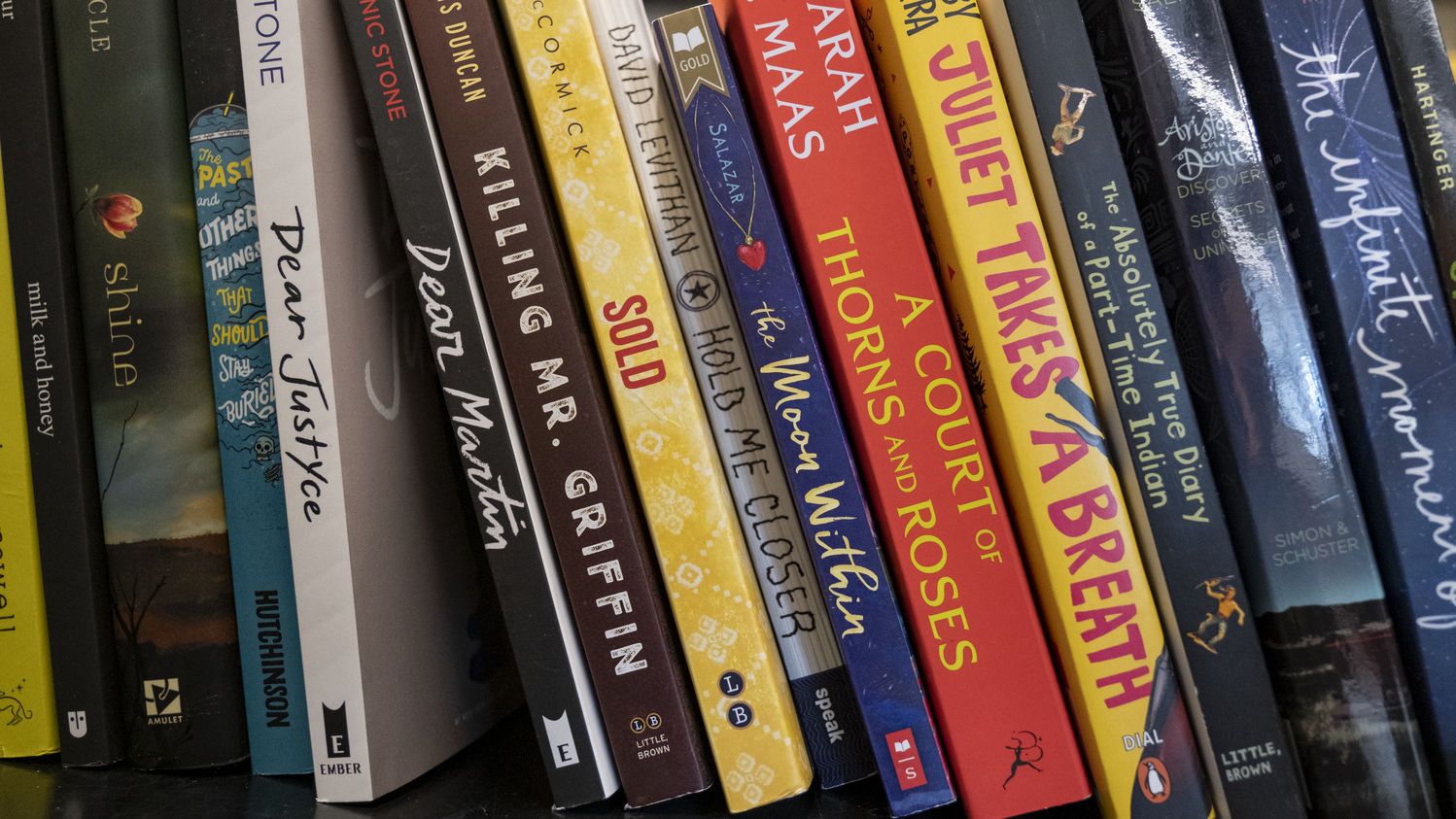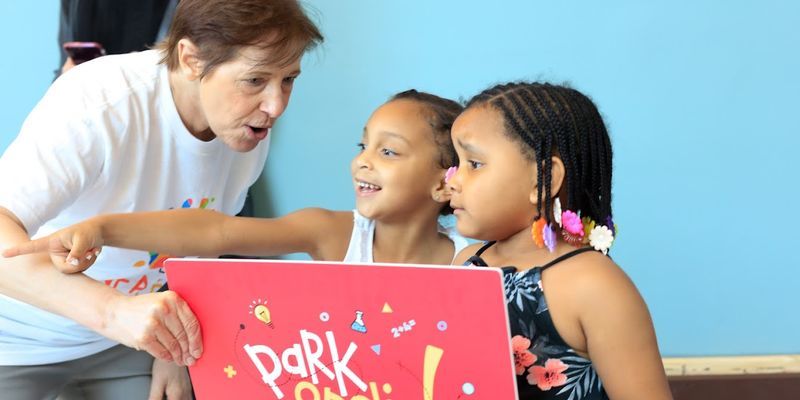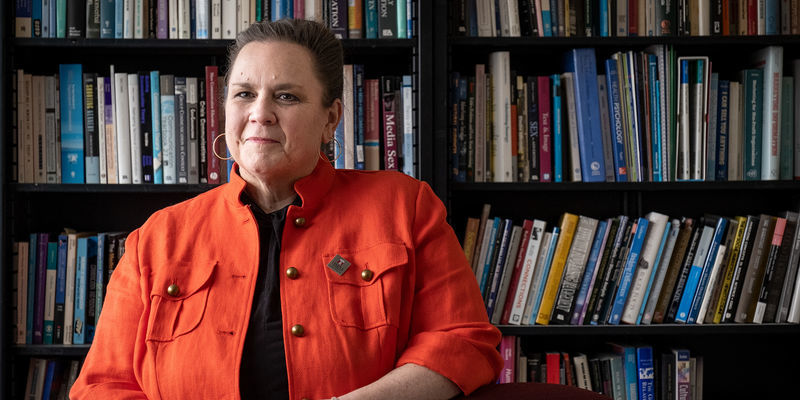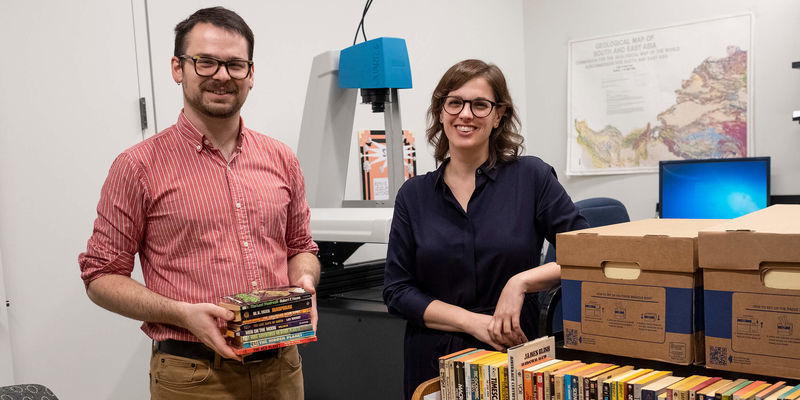Temple researchers examine patterns of inequality in banned books
The Mellon Foundation has awarded the university a grant for faculty, staff and English students to digitize and analyze banned literary works to address issues of inequality.

Since July 2021, more than 1,500 books of contemporary literature have been banned in the United States. Now a team of Temple researchers is looking for patterns across these books to understand what may be causing them to be targeted.
The team is made up of Temple faculty, library staff, and undergraduate and graduate English students who are using text mining to understand patterns of representation in these books. This technique requires them to unbind the books so that the pages can be scanned and digitized. From there, the researchers use natural language processing, machine learning, network analysis and data visualization to identify patterns such as the kinds of adjectives commonly used to describe characters of color or how much dialogue is assigned to characters based on their gender identity.
“Our goal is to study the books that have been most frequently challenged to better understand what makes these novels so ‘dangerous,’” said Laura McGrath, assistant professor of English and one of the research leads of this project. “What ideas about diversity—whether race and ethnicity, gender and sexuality, religion, nationality, or physical ability—are considered taboo? And how is this potentially limiting our understanding of human experience?"
The team is also exploring how marginalized groups are portrayed; how the politics of representation vary across genres and audiences; how these literary representations influence national conversation, civic engagement and social contracts; and ultimately what modes of thought, speech and representation are being banned.
“I’d guess the people who’ve asked for these bans aren’t actually reading the books,” said PhD student Lara Mangino. “They’re likely looking at the cover and reading the synopsis on the back and banning it on that basis.”
Supported by $200,000 grant from the Mellon Foundation, the study will lay the foundation for the development of a large-scale research center called the Representation Lab at Temple University that will further examine equity in contemporary literature and culture. The primary goals of the lab will be to produce and distribute research around issues of representation in contemporary literature, train graduate and undergraduate students in digital humanities research methods and work with publishers and other organizations to address issues of inequality in the publishing industry.
In addition, the Representation Lab plans to use its research findings to advocate for an expansion of the Digitial Millennium Copywright Act, which includes the definition of fair use. Their goal is to expand the definition to include uses for education and research so that more literary works can be made available for digital humanities research like theirs. The Mellon Foundation awarded its grant to the Representation Lab to support their efforts in expanding the fair use definition.
“As a research team we are deeply opposed to book banning, but we do agree with those challenging books on one key fact: books are powerful,” said McGrath.
McGrath and co-lead of the research project Alex Wermer-Colan, interim academic director and digital scholarship coordinator of Temple University Libraries’ Loretta C. Duckworth Scholars Studio, believe that Temple is uniquely positioned for this project given its diverse and urban environment as well as its commitment to socially impactful research.
“We’re trying to challenge the solitary work of scholarship and show how we can work together to build knowledge,” said McGrath. “Research in digital humanities is fundamentally interdisciplinary. Students can apply the humanities skills that they learn in their English classes—like critical reading, textual analysis, persuasive argumentation—to real-world social problems. A group of English majors reading, thinking and arguing together can change the world.”
“This project is the kind of thing I came to Temple for,” said Abigail Carlen Corcelli, Class of 2025. “I knew we were an R1 research institution, and at first I wasn’t sure what that might look like for me as a liberal arts student and especially as an English major,” added the Newport, Rhode Island, native. “This experience alone has opened me up to so many potential avenues of what I might be able to do with my degree. I don’t know how many other English undergraduates can say they’ve had this opportunity to do data science in a lab.”
Temple University Libraries has played a pivotal role in this banned books project and building the Representation Lab. “Thanks to the Charles Library’s staff, workflows and technological resources, we’re able to digitize all these books efficiently, ensure our data is securely stored for analysis and offer a shared lab space for students to explore and learn new digital methods of cultural study,” said Wermer-Colan.
The results of the case study will likely be ready by the end of the fall. McGrath and Wermer-Colan will then share the findings with media outlets and literary organizations such as the Free Library of Philadelphia. They want to make this information available to stakeholders who can do meaningful advocacy work.
“Alex and I chose to devote our project to study banned books out of a sense of moral, intellectual and political urgency,” said McGrath. “As English majors, past and present, we know firsthand the transformational power of reading. Books shape our understanding of the world—what it is and what it could be. Every child deserves that, regardless of who controls their state legislature. At a public university like Temple, we believe that our research should contribute to the public good.”


